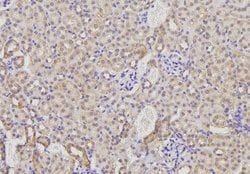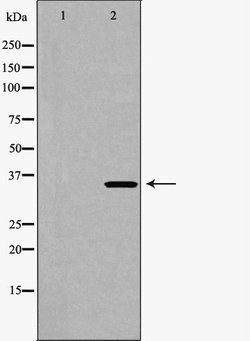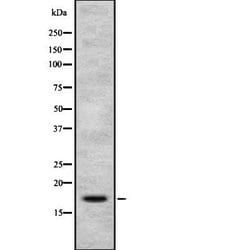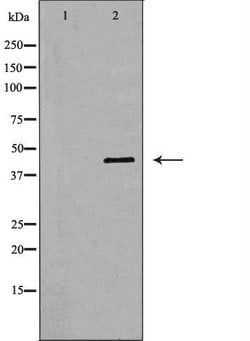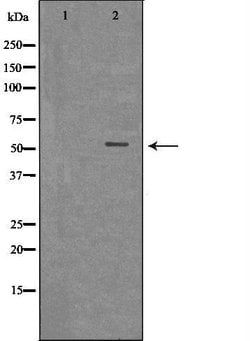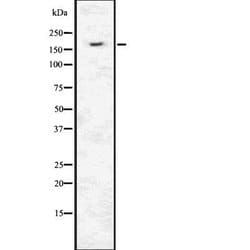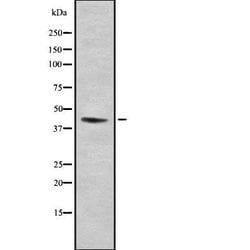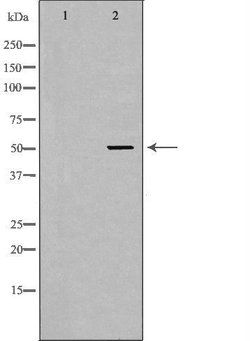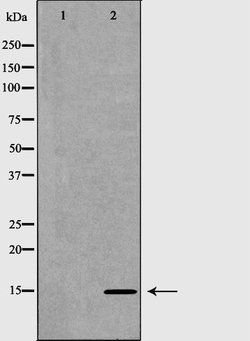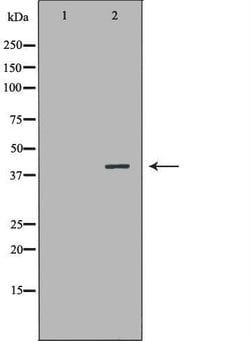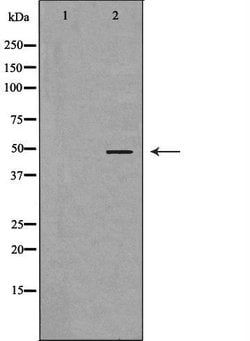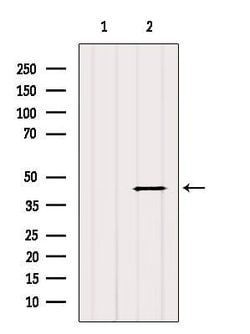NDP Polyclonal Antibody, Invitrogen™
Manufacturer: Thermo Scientific
Select a Size
| Pack Size | SKU | Availability | Price |
|---|---|---|---|
| Each of 1 | PIPA5102534-Each-of-1 | In Stock | ₹ 46,502.50 |
PIPA5102534 - Each of 1
In Stock
Quantity
1
Base Price: ₹ 46,502.50
GST (18%): ₹ 8,370.45
Total Price: ₹ 54,872.95
Antigen
NDP
Classification
Polyclonal
Conjugate
Unconjugated
Gene
NDP
Gene Alias
EVR2; FEVR; ND; NDP; NDP, norrin cystine knot growth factor; Ndph; Norrie disease (pseudoglioma); Norrie disease (pseudoglioma) (human); Norrie disease homolog; norrie disease protein; Norrie disease protein homolog; norrin; norrin cystine knot growth factor NDP; RGD1563968; similar to norrin; X-linked exudative vitreoretinopathy 2 protein
Host Species
Rabbit
Purification Method
Affinity chromatography
Regulatory Status
RUO
Gene ID (Entrez)
17986, 363443, 4693
Content And Storage
-20°C
Form
Liquid
Applications
Immunohistochemistry (Paraffin), Western Blot
Concentration
1 mg/mL
Formulation
PBS with 50% glycerol and 0.02% sodium azide; pH 7.4
Gene Accession No.
P48744, Q00604
Gene Symbols
NDP
Immunogen
A synthesized peptide derived from human NDP(Accession Q00604), corresponding to amino acid residues G67-T117.
Quantity
100 μL
Primary or Secondary
Primary
Target Species
Human, Mouse, Non-human Primate, Rat
Product Type
Antibody
Isotype
IgG
Description
- Antibody detects endogenous levels of total NDP
- ALDH4A1 belongs to the aldehyde dehydrogenase family of proteins
- This enzyme is a mitochondrial matrix NAD-dependent dehydrogenase which catalyzes the second step of the proline degradation pathway, converting pyrroline-5-carboxylate to glutamate
- Deficiency of this enzyme is associated with type II hyperprolinemia, an autosomal recessive disorder characterized by accumulation of delta-1-pyrroline-5-carboxylate (P5C) and proline.
